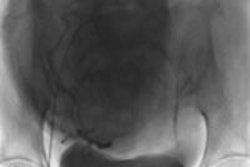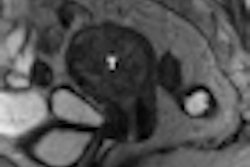Uterine cancer was found in 27 per 10,000 women undergoing minimally invasive hysterectomies using electric power morcellation, in a new study published in the Journal of the American Medical Association.
In the procedure, the uterus is fragmented into smaller pieces prior to removal. Despite the commercial availability of electric power morcellators for more than 20 years, accurate estimates of the prevalence of malignancy at the time of the procedure are lacking, with single-center studies reporting prevalence from nine to 100 in 10,000, wrote researchers from Columbia University College of Physicians and Surgeons.
"Recently, concern has been raised that morcellation may result in the spread of undetected malignancies," wrote lead author Dr. Jason Wright and colleagues. "Prevalence information is the first step in determining the risk of spreading cancer with morcellation."
Wright's group used a large insurance database for the study, identifying 232,882 women who had a minimally invasive hysterectomy between 2006 and 2012. Of these, 36,470 (15.7%) underwent morcellation. Among those who had the procedure, 99 cases of uterine cancer were identified, for a rate of 27 per 10,000, the researchers concluded (JAMA, July 22, 2014).
"The outcome of women with pathological abnormalities who underwent morcellation requires further study," the group concluded. "Patients considering morcellation should be adequately counseled about the prevalence of cancerous and precancerous conditions prior to undergoing the procedure."



















